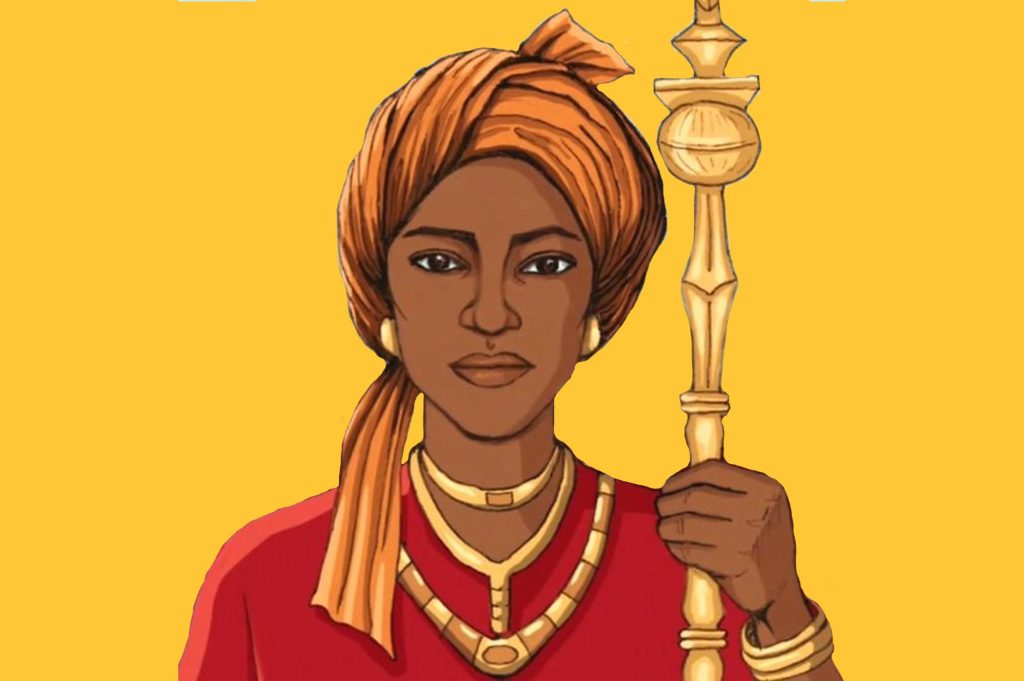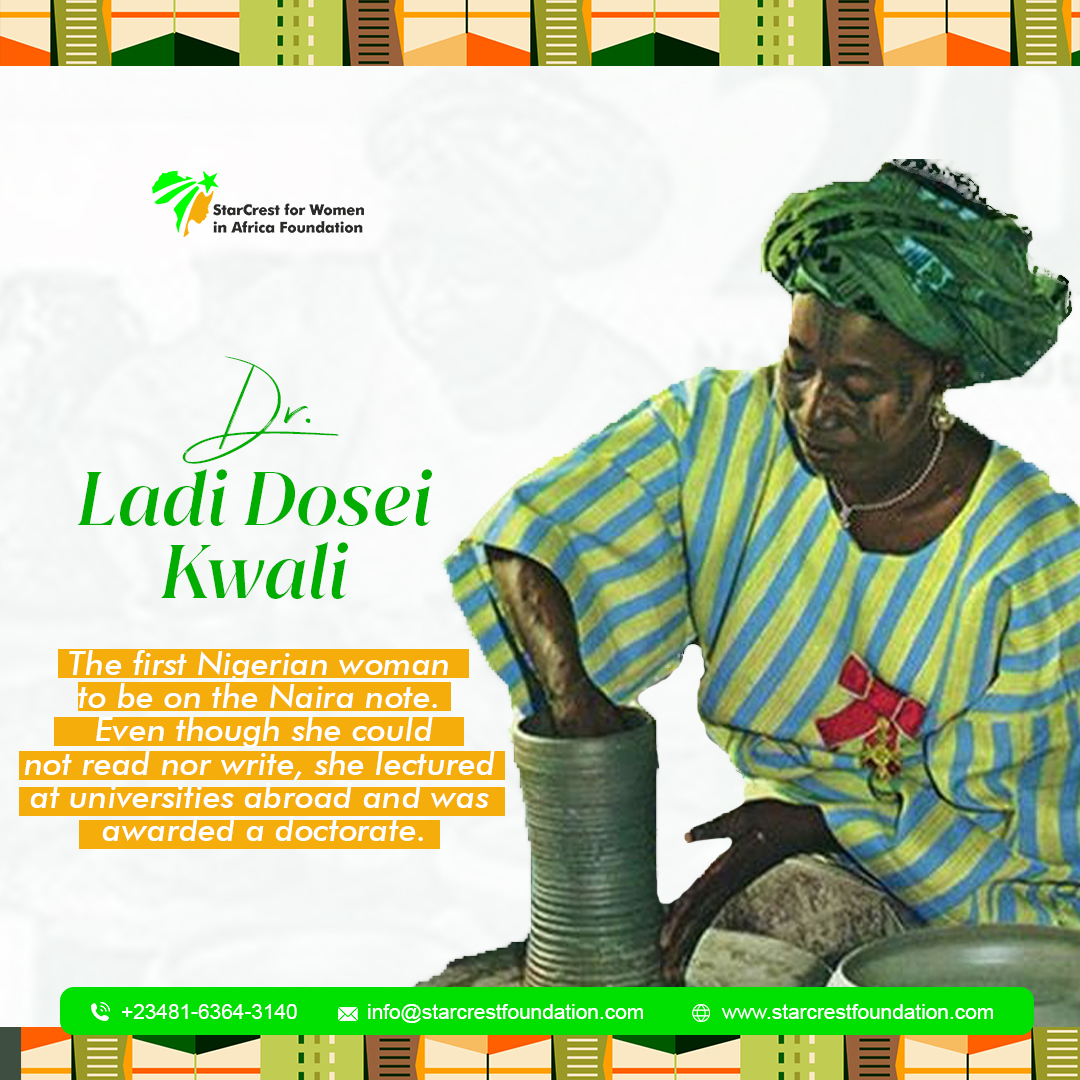Queen Amina of Zaria (circa 1533–1610), also known as Aminatu, is one of Nigeria’s most iconic historical figures, celebrated for her military prowess and political acumen. A powerful warrior queen of the Hausa city-state of Zazzau (now Zaria, in present-day northern Nigeria), she is renowned for expanding her territory and influencing the socio-political landscape of 16th-century Hausa land. Her legacy is often recounted in Hausa oral traditions and remains a symbol of strength and leadership for women across Africa.
Early Life and Rise to Power
Amina was born in the royal family of Zazzau, one of the original seven Hausa city-states in northern Nigeria. Her father, Bakwa Turunku, was the ruler of Zazzau, and under his leadership, Zazzau was a flourishing commercial center, part of the trans-Saharan trade routes that linked West Africa with North Africa and the Mediterranean. Her mother, Queen Bakwa of Turunku, was also a significant figure and one of the first female rulers in Hausa history.

From a young age, Amina exhibited an interest in politics and military affairs, choosing to train with the warriors of her kingdom. She was skilled in combat, particularly in the use of spears, and was known for her boldness and intelligence. Upon her father’s death, Amina’s brother Karama ascended the throne, but Amina was given the title of Magajiya, or heir apparent. After Karama’s death, Amina assumed power, around 1576, and quickly began expanding Zazzau’s influence.
Military Campaigns and Territorial Expansion
Queen Amina is credited with leading one of the most aggressive and expansive military campaigns in West African history. Under her leadership, Zazzau became the largest and most powerful of the Hausa city-states, with its borders stretching across what is now northern Nigeria and beyond.
She assembled a large and well-trained army, reputed to be among the most formidable of her time. According to oral history, Amina fought with her warriors on horseback, sometimes leading armies herself. Her military campaigns expanded Zazzau’s territory into present-day Niger, as well as parts of Mali, Chad, and other neighboring areas. This territorial expansion allowed Zazzau to control trade routes and resources, increasing the kingdom’s wealth and influence.
Contributions to Trade and Infrastructure
Queen Amina was not only a military strategist but also a shrewd ruler who enhanced Zazzau’s wealth by controlling trade routes. She established trade links with distant lands, opening Zazzau to goods such as salt, gold, and horses, and making it a key player in regional trade.
Amina is credited with fortifying her city-state by building walls around it, a practice that influenced later Hausa architecture and city planning. These “Amina Walls,” as they are called, were fortifications that served as defenses against invaders and marked the borders of her expanding empire. Today, the remains of some of these walls are still visible in parts of northern Nigeria.
Cultural Influence and Gender Equality
Queen Amina’s legacy extends beyond her military achievements and territorial expansions. She is remembered for her contributions to women’s roles in leadership within Hausa culture and for challenging the traditional boundaries of gender. By leading armies and governing her kingdom with authority, Amina became a symbol of female empowerment and agency in a male-dominated society.
Her legend continues to inspire women in Africa and beyond, serving as a reminder that women are capable of leadership and bravery in the face of adversity. Queen Amina’s story has been celebrated in various cultural forms, including literature, films, and oral traditions, and she remains a highly respected historical figure in Nigeria.
Legacy and Myths Surrounding Queen Amina
Although Queen Amina’s history is based on oral traditions and her life is often interwoven with myths and legends, her influence on West African history is undeniable. She remains a symbol of power and determination, exemplifying the strength and independence of African women leaders.
Some accounts suggest that Amina never married, choosing instead to dedicate her life to her people and her military conquests. Legends claim she would take a husband from among her warriors after each battle, only for him to be executed the next day, though these tales are largely considered mythical embellishments.
Her legacy is celebrated in Nigeria and worldwide, with her story serving as an educational tool for understanding pre-colonial African societies and as an inspiration for women in leadership and military roles.
Commemoration and Influence
A statue of Queen Amina stands at the National Arts Theatre in Lagos, honoring her contributions to Nigerian history. She has also inspired various cultural works, including plays, songs, and a feature in African Queens: Njinga and Amina, a documentary series that brings her story to a global audience.
Today, Queen Amina is remembered not only as a legendary warrior queen but as a national hero in Nigeria, embodying the virtues of courage, leadership, and resilience. Her life has left an indelible mark on Nigerian and African history, symbolizing the strength and potential of African women in positions of power.



